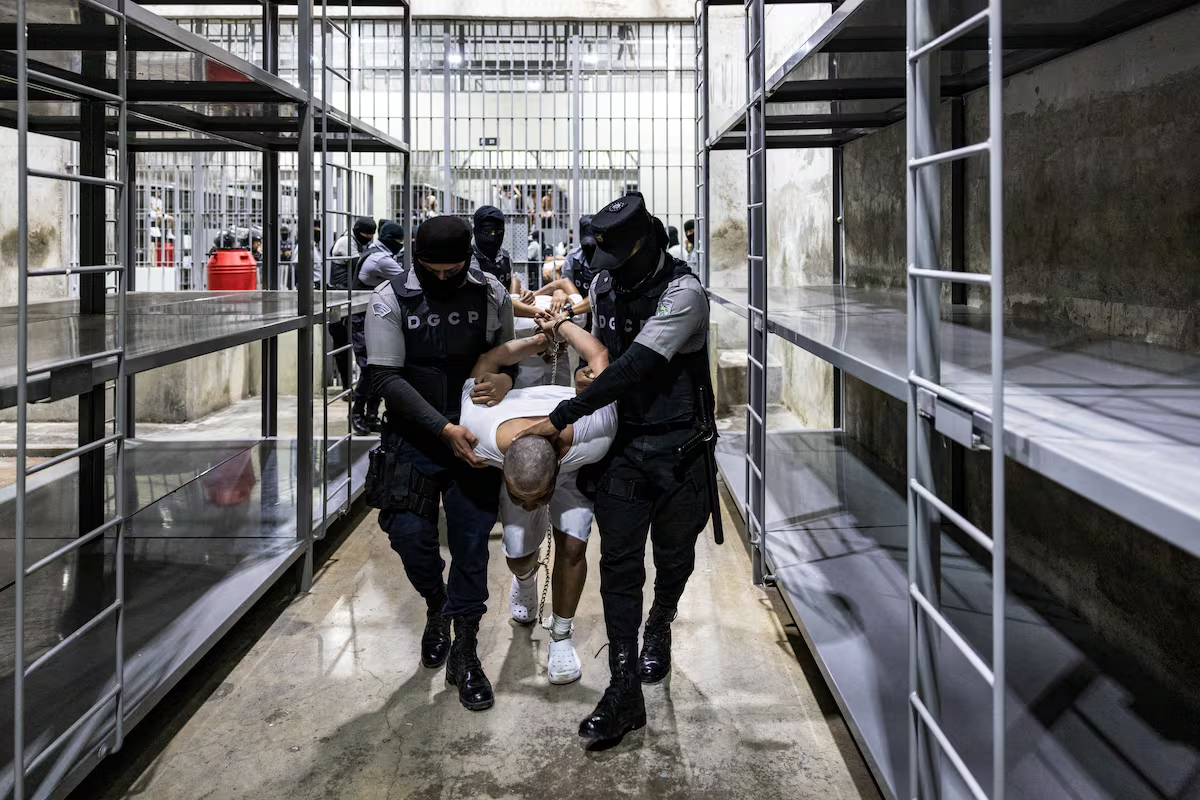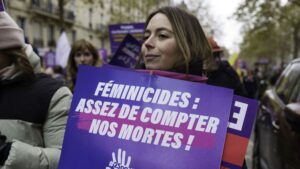
Four Salvadorans deported by the Donald Trump administration last March and reported missing by their families were eventually placed in different prisons in the Central American country’s penitentiary system, according to official documents obtained by EL PAÍS. They are José Osmín Santos Robles, Brandon Bladimir Sigarán Cruz, William Alexander Martínez Ruano and Irving Geovani Quintanilla García, who were deported in March 2025 together with more than 238 Venezuelans, accused of being members of terrorist networks without the Republican administration providing evidence against them.
After their deportation, Nayib Bukele’s government refused for months to provide information on the men’s whereabouts to their families. However, following repeated requests for information from the Inter-American Court of Human Rights (IACHR), El Salvador’s executive branch finally acknowledged that they are in its custody. According to documents obtained by EL PAÍS, only Brandon Sigarán is detained in the Confinement of Terrorism Center (CECOT), the mega-prison wanted by Bukele and today a sad symbol of the lack of guarantees for Salvadoran prisoners. The other three are being held at the Santa Ana Sentence Enforcement and Rehabilitation Industrial Center, a less severe prison.
Last week, the IACHR issued precautionary measures in favor of the first three, while measures had already been requested for Quintanilla García on 2 October. According to the international body, the lives of the four young people are at risk of “irreparable damage” and has asked the Salvadoran state to guarantee their safety.
The IACHR also asked the Bukele government to formally clarify the legal situation of the four detainees, specifying the crimes of which they are accused and whether they have already been presented before a judge. The applicants before the IACHR claim that they were not informed of the charges against the detainees or why they remain in prison, as they did not have access to the detainees after their deportation. The IACHR also called for an end to the isolation of prisoners and for them to once again be able to contact their families and lawyers regularly.
In the previous months, the families of the four had reported their disappearance, contacting various media outlets. Following these contacts, the Salvadoran government accused the IACHR of leaking information from its internal communications and requested measures to “ensure the confidentiality of the information.”
EL PAÍS obtained the document, dated November 6 and signed by the Permanent Mission of El Salvador to the Organization of American States (OAS), in which the country’s authorities claim that public knowledge of these cases “facilitates their manipulation for purposes unrelated to the objective of the precautionary measures.”
For seven months, the Salvadoran government denied knowing the whereabouts of the four young men, until mid-October, when it confirmed their whereabouts. However, none of their families have yet been able to see the detainees.
Detained without knowing why
Although the Salvadoran government admitted to detaining the four deported youths, it tried on several occasions to avoid providing information about them. In another document dated August 29, 2025, the government told the IACHR that it had no information on Irving García, as “the young man’s arrest occurred under the jurisdiction of another State.” He added that this put El Salvador “in the position of not being able to provide information.”
The same happened in the case of Brandon Sigarán Cruz. A relative of the migrant shared with EL PAÍS dozens of screenshots and official documents showing the family’s requests for information to various government offices, including the Salvadoran Embassy in the United States, the Ministry of Foreign Affairs and the General Directorate of Penitentiary Centers. In the screenshots, officials are seen passing the responsibility from one office to another without providing any real information to the family member.
Sigarán was captured on February 22, 2024, while on his way to work with his brother. After a year of detention, he was deported in March 2025 along with hundreds of Venezuelans. After identifying him in a video published by President Bukele, the family launched legal proceedings to locate him and ask for his release. “A lawyer helped us search all the prisons in El Salvador until he found out she was in CECOT. Then she resigned because she said she feared retaliation for turning against President Bukele’s government,” said a relative of Sigarán.
The precautionary measures issued by the IACHR in favor of the four Salvadorans note that the crimes of which they are accused and whether they were presented before a judge, in violation of the law, remain unknown.
President Bukele announced on March 15 via his website. However, months later, it became clear that there was another motive behind the deal: Bukele wanted a dozen gang leaders handed over to US authorities so they could testify against him.
After multiple hurdles, the Trump-Bukele prison deal to incarcerate undocumented migrants appears to have reached its final stage. In July, the Salvadoran president handed over more than 200 Venezuelans who had spent months in CECOT in exchange for a share of U.S. political prisoners. A recent report by Human Rights Watch and Cristosal confirmed that those Venezuelans were subjected to torture. Meanwhile, the fate of Salvadorans held in the same prison remains unknown. Despite intense official propaganda, CECOT continues to be a black hole from which almost no one escapes.
Sign up to our weekly newsletter to get more English-language news coverage from EL PAÍS USA Edition





